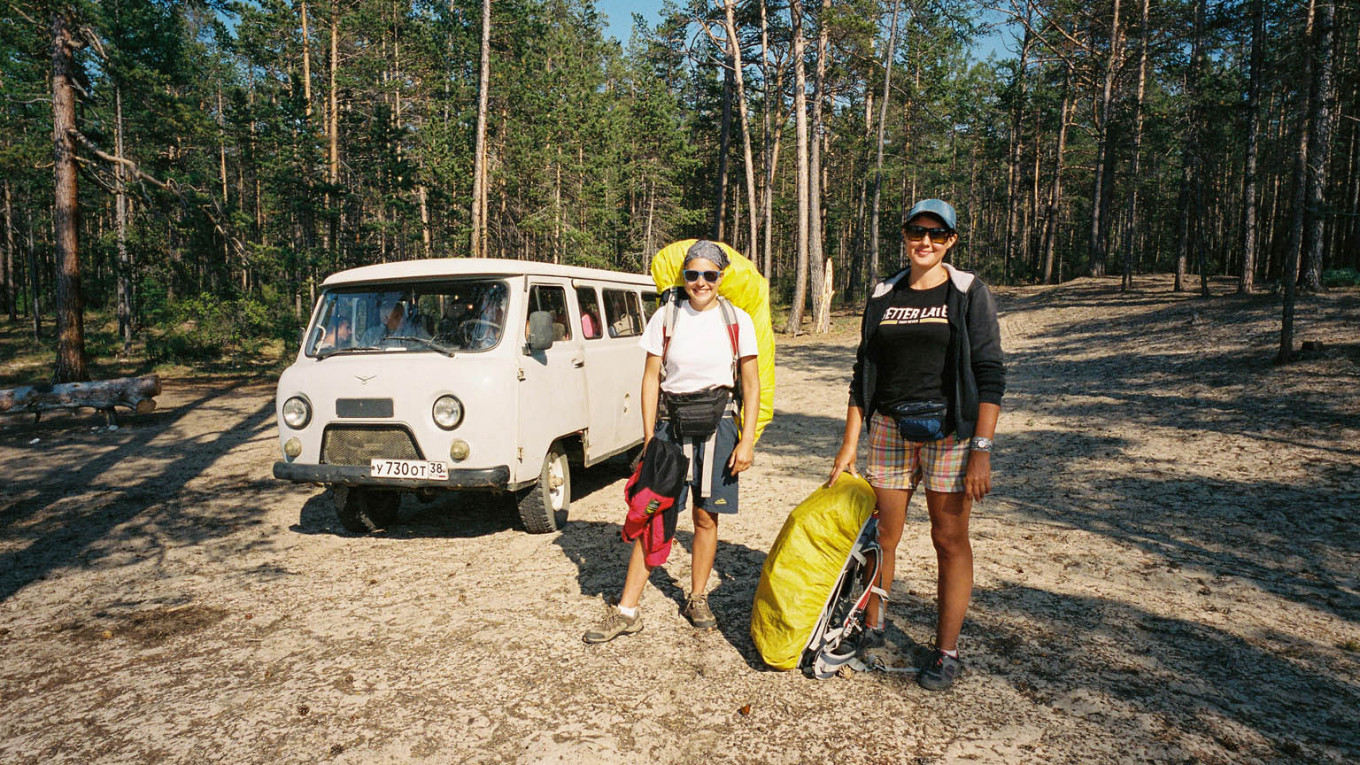We are hitchhikers. In winter, spring and fall we have regular jobs in sales. We sell building materials and wood to save up for the upcoming travel and equipment. Then in summer we always quit our jobs and hit the road. Our employers hate this, as it is the biggest selling season. But in life you have to prioritize and for now our choice is to travel. Because it is better than sitting in an office in front of a computer screen.
It all started when our friend traveled across Russia for five years as a hitchhiker. We went for 10-day trip, and after that we just couldn’t stop. First, we explored our region, Altai. And last year we hitchhiked to Crimea. We traveled 4,500 kilometers from Barnaul to Novorosibirsk in six days. Then we also hitchhiked around Crimea, explored the shores of the Black and Azov Seas. Now we have been traveling from Barnaul to Vladivostok for more than a month.
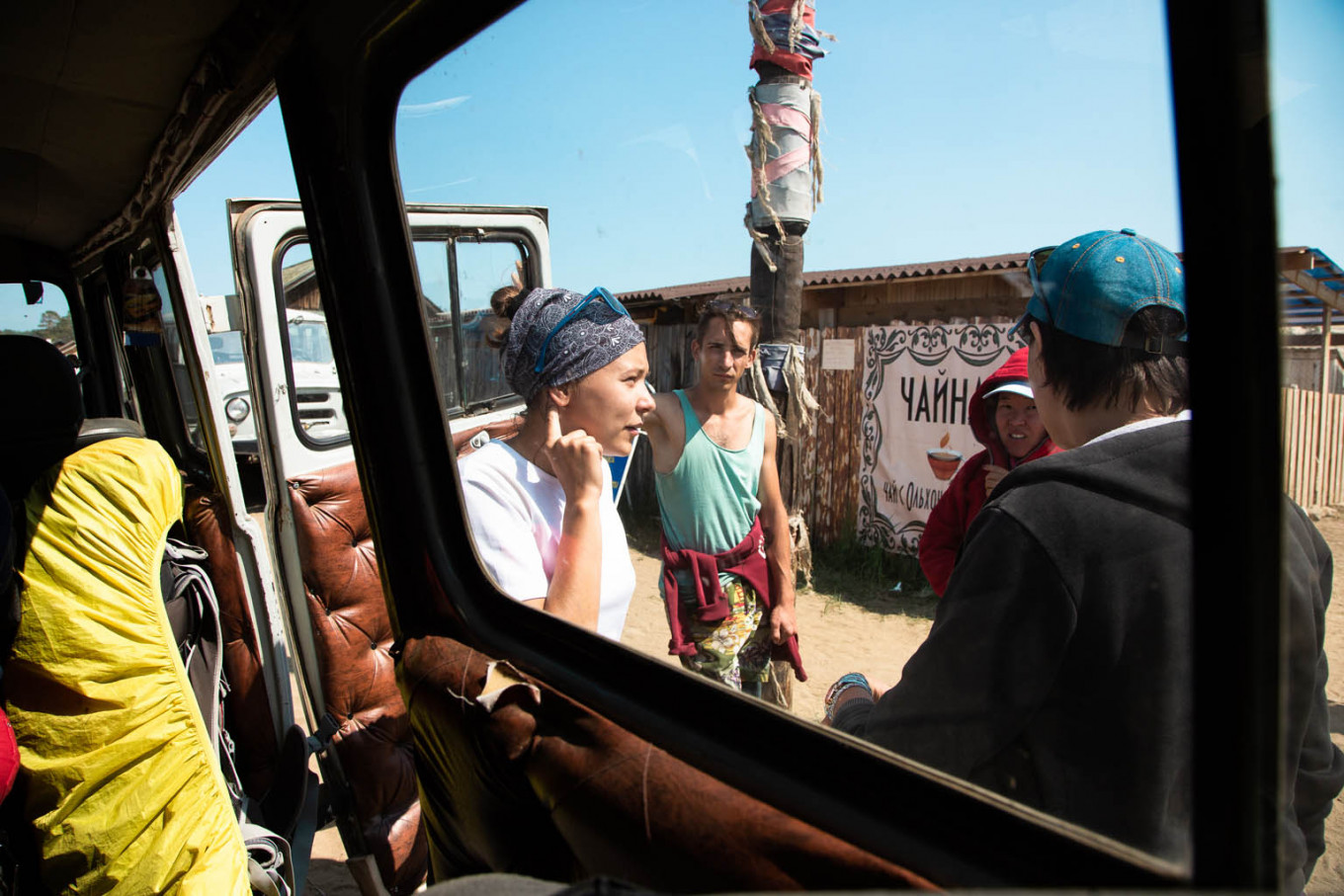
We choose routes near the federal highway so that we can come and go within three days without carrying 50 kilos of food. All the travel is planned. First we think over the route, calculate the timing. During the trip, we ask locals where to go and we check out the places that impress us from their stories. We mostly look for beautiful nature spots; cities are less interesting to us. We sleep for free at places through couch surfing.
The drivers are well-wishers. A lot of people say “Now if I hadn’t stopped here you would have had to walk along the highway to your destination.” Everyone thinks that he alone was kind enough to stop for us and that nobody else have picked us up. But normally as soon as we come out to the highway, we just get into a car and leave. Sometimes drivers say that they can only take one of us, but separating is not safe.
The drivers tell us their tales. Once we were traveling through Irkutsk region. We got into the car, and everything was fine. Typical introductions, “Hello, I’m Olya, I’m Zhenya, I’m Alexei,” and then we left. He started talking about people who had spent time behind bars. He said, “I was sentenced to jail three times,” and looked at us. He probably thought that we would get scared, jump out of the car and run away (laughs). But we are girls with a sense of humor, and we began asking him questions. Over the whole eight hours on the road he told us about life in prison: what can be made from bread, how to properly enter a prison cell and how to make chifir [editor’s note: an exceptionally strong tea, brewed in Soviet detention facilities such as gulags and prisons].
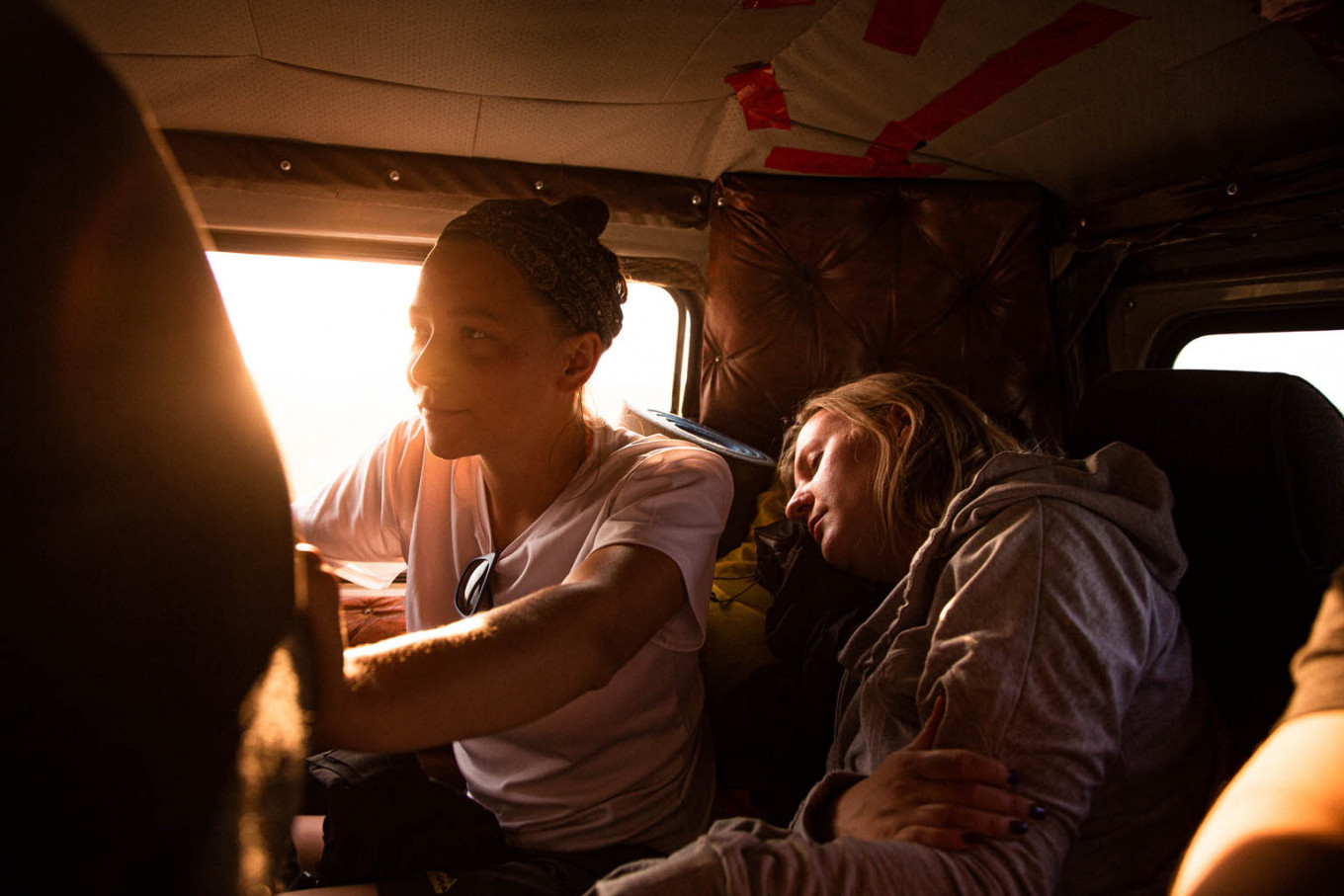
One time we spent the night at the police station. We drove to Teletsky Lake in Altai Republic. The driver got out of the car to take our photo and didn’t put on the brake. And the car with money and documents went under the water up until the roof. We watched the car slide into the water and bubbles appear on the water surface. Like in a movie. Then until the morning: first they called a tractor, but the tractor couldn’t pull it out. So he had to call a shishiga [editor's note: Russian 4×4 all-road (off-road) military truck produced by GAZ]. As a result, the district police officer took pity on us and drove us to the police station. They have a resting room for staff there. They gave us a blanket and hot tea to warm us up.
Once we went with a driver in a Lada when rain was pouring on the windshield like it was from a bucket. And the wipers didn’t work. He was driving more than 100 km/hr. and he said “Look, girls, what I can do!” The music blasted loudly from his speakers, vibrating the entire car, and the water slid off the windshield. He was guided only by the oncoming lights. We were very scared. It’s good that the rain in Altai is just a very quick downpour.
One time we were driven by a trucker from Pyatigorsk. He picked us up in Samara and drove us to Omsk. We drove for three days, spending the night in the cabin. He let us steer, and we drove a truck that was 16 meters long, loaded with 20 tons, despite the fact we only had category B driver’s license.
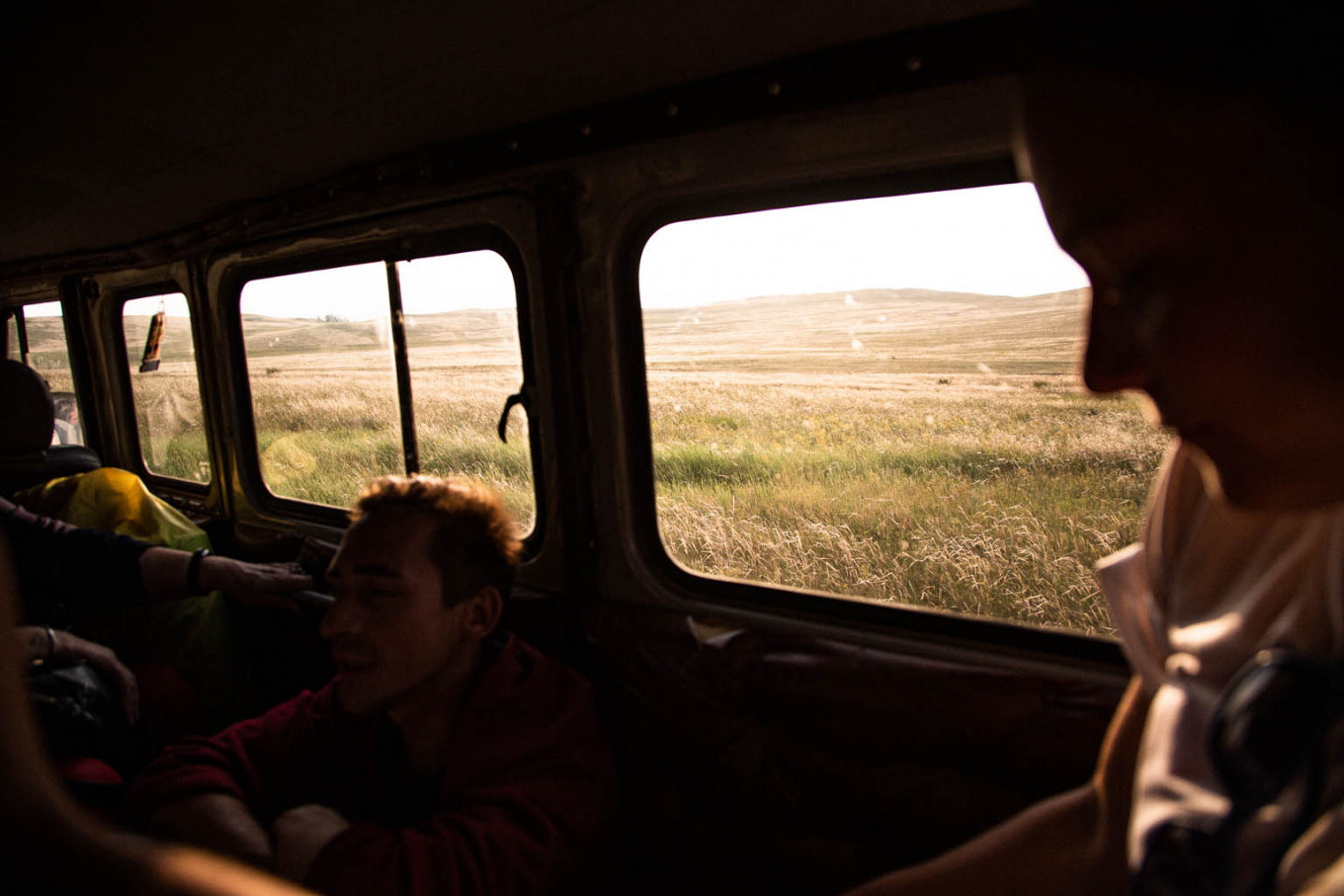
On a normal travel day we carry a sleeping bag, several pairs of socks, underwear, pants, shorts and t-shirts, hats, groceries, personal hygiene products and a first-aid kit in our backpacks.
Hitchhiking is a completely spontaneous way of traveling. You need to understand exactly what the risks are, because no one gives you a guarantee whether or not you will manage to drive a thousand kilometers today or not. Over these kilometers you encounter many people and their stories every day. When you’re in your own car or a train, you can be silent. But here you are forced to communicate with people, learn a lot, leave a mark in their life, just like they do in yours. Through these encounters you learn about cool places that you can’t find even on the internet. In hitchhiking, you spend 24/7 with your travel partner. By now we now understand each other right away, we no longer need words to communicate.
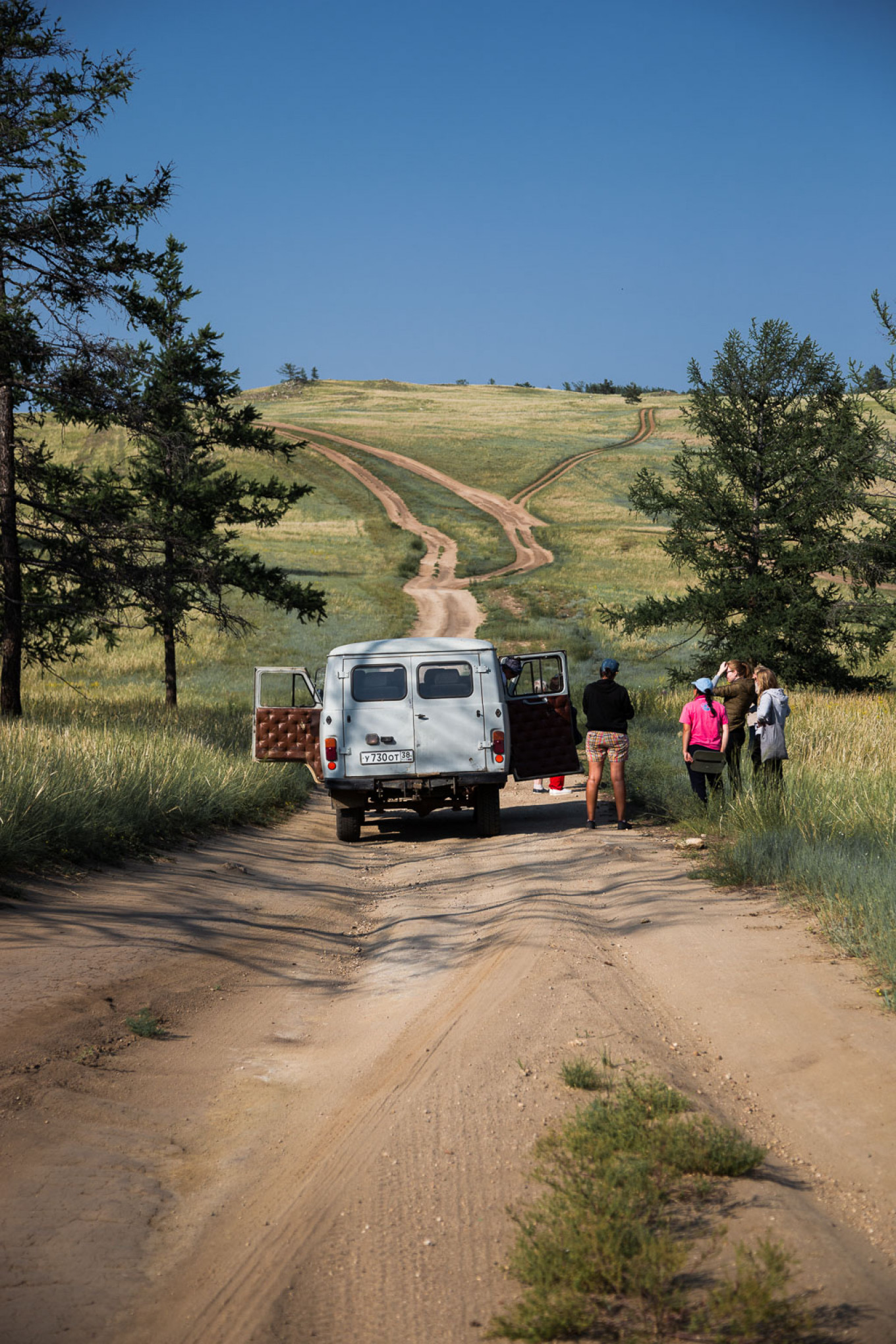
During these travels, you get acquainted with different nationalities and regions of Russia, and you begin to love your homeland. We don’t need to go anywhere abroad. We have such a huge country, a lot of cool places that you can't find anywhere else in the world. To see them, you only need time and desire. Sometimes you see the beauty in the details. So, the heart sinks. The sunset we saw in Barguzin is nowhere to be found. An orange sun, cold water, cold blue; the warm sea of the Tatar Bay - you can't find these anywhere else.
Now after two months of traveling, we really want to be home. I want to go home, lie on my favorite sofa and hug my beloved cat. The next trip planned – Thailand. The really popular route in South East Asia: Thailand – Cambodia – Laos.
This story was first published by Mesto47. You can read this and other stories or listen to a podcast on their site.
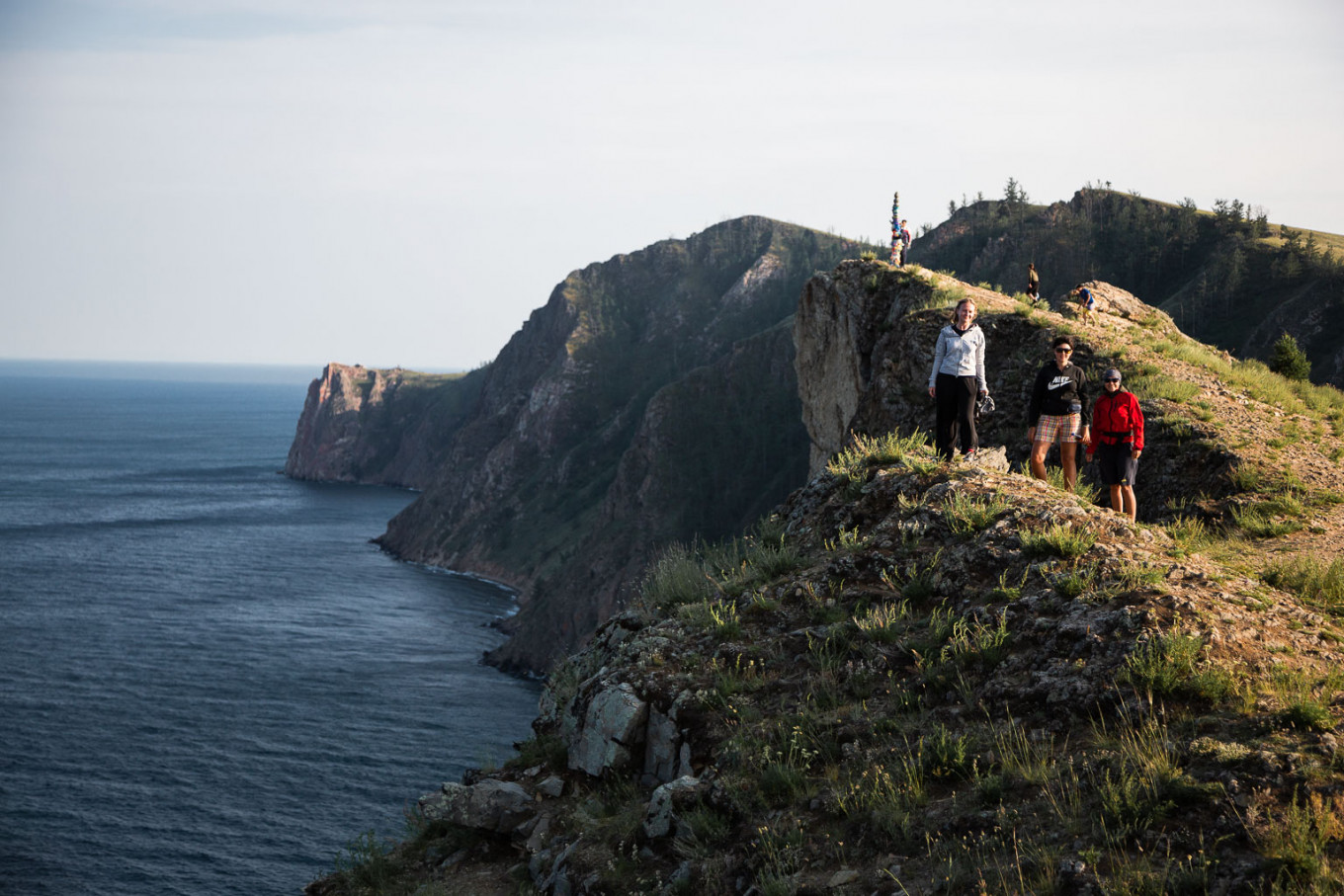
A Message from The Moscow Times:
Dear readers,
We are facing unprecedented challenges. Russia's Prosecutor General's Office has designated The Moscow Times as an "undesirable" organization, criminalizing our work and putting our staff at risk of prosecution. This follows our earlier unjust labeling as a "foreign agent."
These actions are direct attempts to silence independent journalism in Russia. The authorities claim our work "discredits the decisions of the Russian leadership." We see things differently: we strive to provide accurate, unbiased reporting on Russia.
We, the journalists of The Moscow Times, refuse to be silenced. But to continue our work, we need your help.
Your support, no matter how small, makes a world of difference. If you can, please support us monthly starting from just $2. It's quick to set up, and every contribution makes a significant impact.
By supporting The Moscow Times, you're defending open, independent journalism in the face of repression. Thank you for standing with us.
Remind me later.


